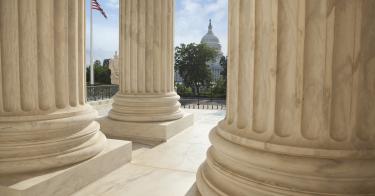What does it mean to be middle-class in America today?
Although there are exceptions, a middle-class lifestyle in the U.S. today typically involves holding a full-time job, having a car and earning enough to eventually buy a house.
Income and consumption are up, thanks to economic growth over the past generation. So why do so many Americans feel that those middle-class milestones are becoming harder to achieve?
One reason for the disconnect between data and perception is that there's more prejudicial regulation in the economic areas that define middle-class status.
In the classic understanding of economic regulation, the government sets out the rules and lets the market work. If someone breaks the rules — perpetrating fraud or malpractice — he or she faces heavy penalties. The classic approach to regulation left citizens free to work, compete and innovate as they wished.
However, in more and more areas, governments have stepped in to prejudge who may or may not participate in the market. Rather than allowing home builders, automakers and professionals to compete on an equal playing field with the same rules, government has intervened in each of these crucial sectors and colluded with economic insiders to raise prices and decrease opportunity.
A Heritage Foundation research paper published in 2015 examined a dozen cases of overregulation and estimated that the average family pays $4,440 a year in higher prices, thanks to the market restrictions of those regulations.
Home prices are heavily influenced by local regulation. In reasonably regulated cities and suburbs, the government enforces safety requirements through building codes. But in a growing number of municipalities, central planners and nosy neighbors are given veto power over construction projects large and small.
The result is that the supply of housing cannot expand as it should, so prices rise, pushing out families at the edge of the middle class.
Moving up to the state level, one finds an astounding web of regulation that forces businesses and individual employees to seek permission from the state before opening a store or taking a job. The effect of this “permission slip” approach to government is to decrease opportunity and competition. The license regime makes it harder for aspiring professionals to begin careers and for entrepreneurs to start new businesses.
Even families that already are well-employed suffer from “permission slip” government. For the typical American household, license requirements for professionals, from barbers to teachers to dentists, cost $1,037 per year.
At the federal level, overregulation of energy markets and auto manufacturers substantially raises the costs of transportation. Fuel economy standards implemented by the Obama and Bush administrations have added $3,800 to the cost of the average car. The federal mandate to include inefficient corn ethanol in gasoline also hits drivers' wallets.
Policymakers can square the optimistic views of economists with the views of voters who feel that the U.S. economy is failing them by focusing on making it easier for struggling families to achieve middle-class status. Less regulation of housing, career and fuel markets would help more families to achieve the self-sufficiency that is the foundation of the American Dream.
This piece originally appeared in Pittsburgh Tribune-Review



